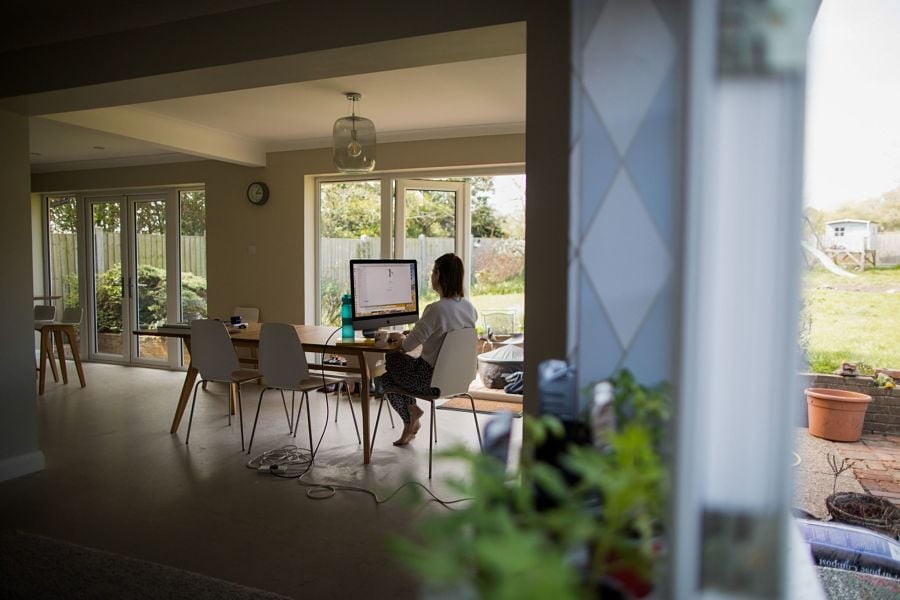

Finra is trying to update its rules to accommodate the work-from-home trend that's impacting its member brokerages, but the SEC wants more input on whether allowing remote supervision could lead to investor harm.
In July, the Financial Industry Regulatory Authority Inc. filed a proposal with the Securities and Exchange Commission that would allow a broker working remotely to supervise other brokers without the broker’s home being designated as a branch office.
The so-called residential supervisory location would be subject to examination by the parent brokerage once every three years instead of the annual inspection that must be performed at an office of supervisory jurisdiction.
The SEC, which must approve Finra rules, put the proposal out for an initial comment period over the summer. The agency heard from firms and industry groups that supported the measure. But it also received letters from the North American Securities Administrators Association, which represents state regulators, and the Public Investors Advocate Bar Association, which both warned that remote supervision would undermine investor protection.
On Monday, the SEC opened another comment period on the proposal that will run for 21 days after the agency's regulatory notice is published in the Federal Register.
It’s unclear whether the SEC will eventually approve the proposal, but it isn’t satisfied that it has collected enough information.
“I would think the SEC wants to be very careful with this, that they’re thinking of all the ramifications,” said Steven Hurwitz, director of compliance consulting in the financial services practice at Kroll.
The residential supervisory location, or RSL, proposal complements a separate proposal that was filed with the SEC to establish a three-year pilot program for remote supervision of branch offices. On Monday, Finra asked the SEC to allow firms to continue doing remote inspections through 2023, an option they’ve had throughout the Covid pandemic.
Finra is “trying to come up with something in the middle” to address the “new reality of work,” Hurwitz said of the RSL proposal. “I think it’s as far as they really can go.”
Among the restrictions on an RSL would be that only one broker can work from there. The broker could not meet with customers or handle securities or customer funds at an RSL. The broker at the RSL also would have to use the parent firm’s electronic communication system.
“Finra believes that home offices can be effectively supervised under this proposal, and the proposed limitations on which locations would qualify to be designated as [a residential supervisory location] provide important safeguards to allow the frequency of inspections potentially to be reduced only for lower risk locations,” Finra said in a letter Monday responding to the RSL comments over the summer.
Finra said that it won't make any changes to the RSL proposal. It might have to be modified, though, if the SEC rejects it.
AdvisorHub first reported on the SEC’s additional comment request.

Chasing productivity is one thing, but when you're cutting corners, missing details, and making mistakes, it's time to take a step back.

It is not clear how many employees will be affected, but none of the private partnership’s 20,000 financial advisors will see their jobs at risk.

The historic summer sitting saw a roughly two-thirds pass rate, with most CFP hopefuls falling in the under-40 age group.

"The greed and deception of this Ponzi scheme has resulted in the same way they have throughout history," said Daniel Brubaker, U.S. Postal Inspection Service inspector in charge.

Elsewhere, an advisor formerly with a Commonwealth affiliate firm is launching her own independent practice with an Osaic OSJ.
Stan Gregor, Chairman & CEO of Summit Financial Holdings, explores how RIAs can meet growing demand for family office-style services among mass affluent clients through tax-first planning, technology, and collaboration—positioning firms for long-term success
Chris Vizzi, Co-Founder & Partner of South Coast Investment Advisors, LLC, shares how 2025 estate tax changes—$13.99M per person—offer more than tax savings. Learn how to pass on purpose, values, and vision to unite generations and give wealth lasting meaning
